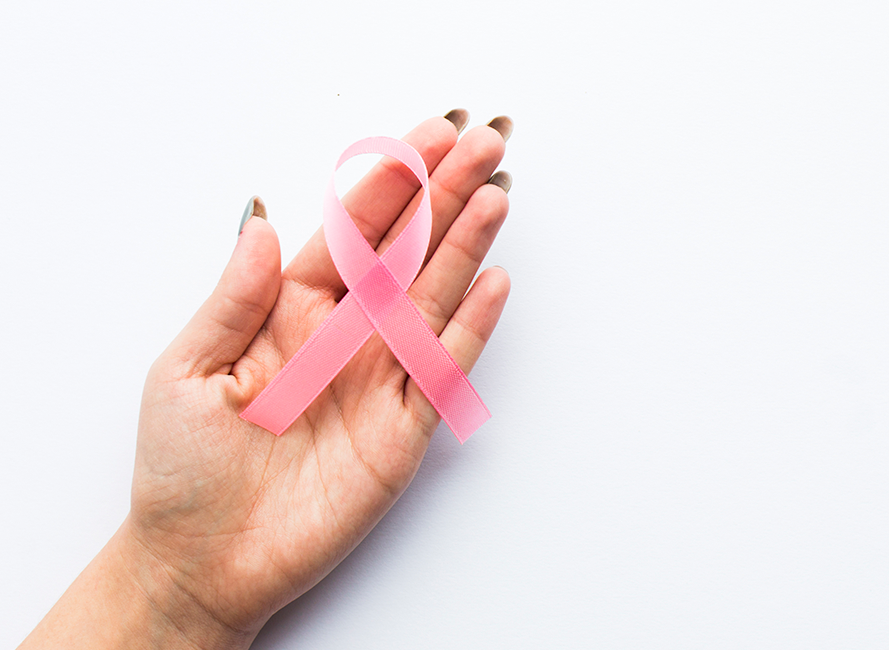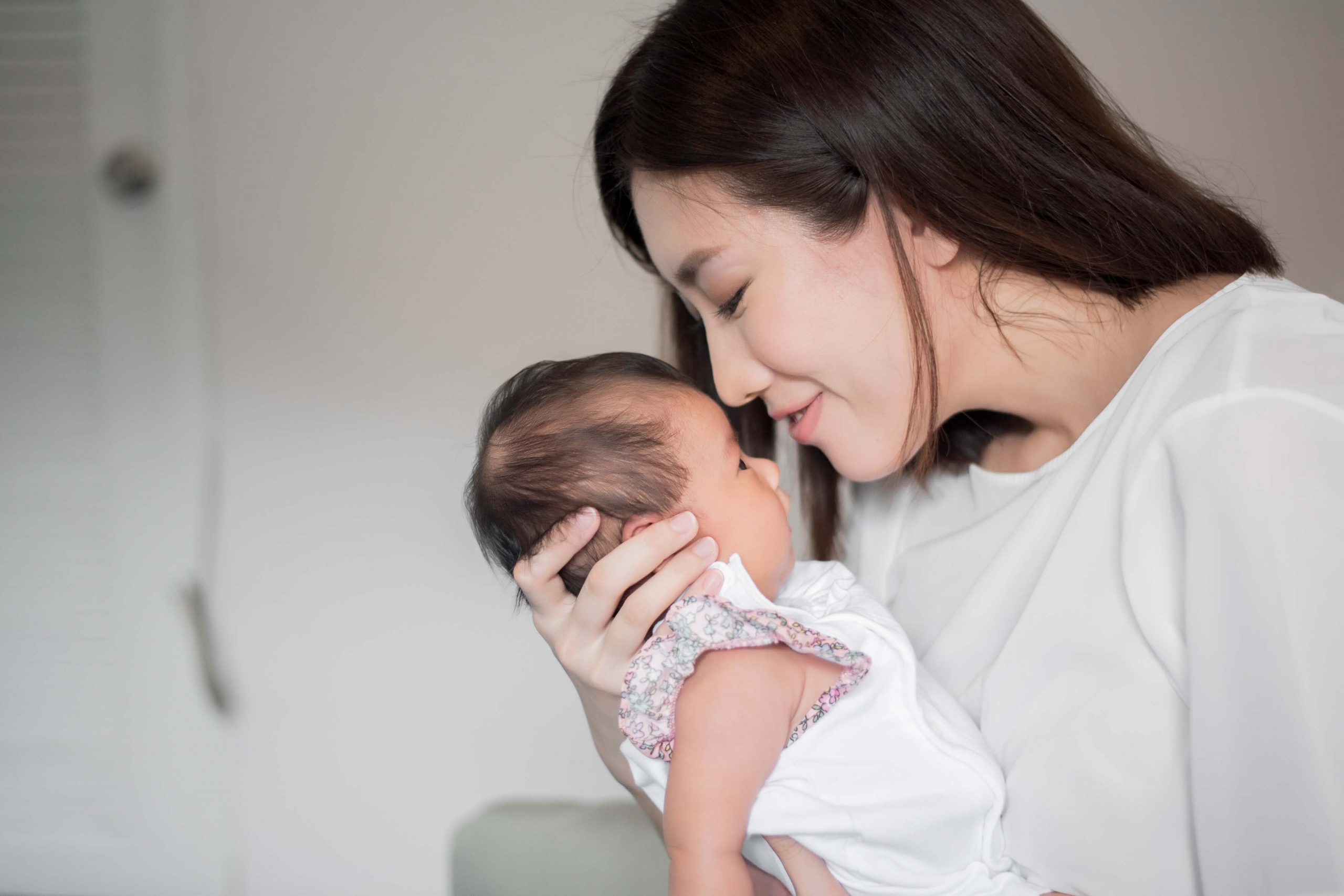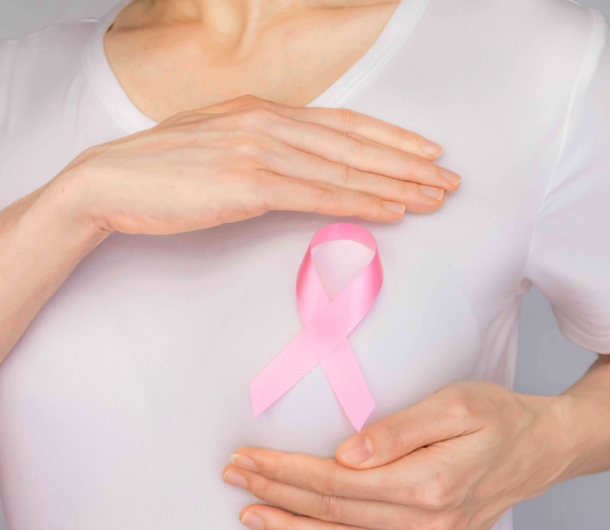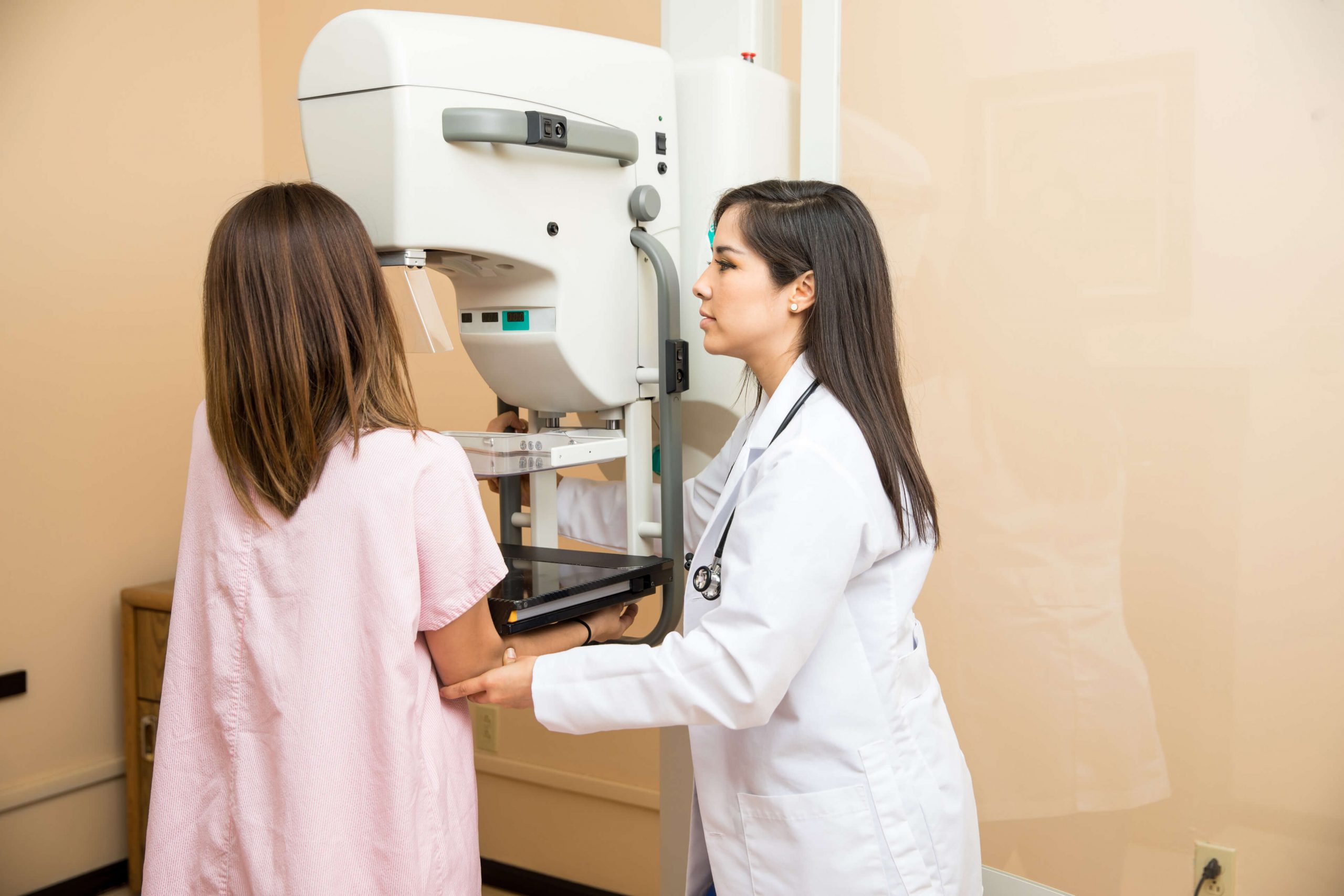Breast Health
Breast Cancer: Risk Factors, Symptoms & Screening

Breast cancer is one of the most common invasive cancers among women and the leading cause of cancer death in Singaporean women. Statistics from the National Cancer Centre show that breast cancer alone accounts for approximately 29.1% of cancer diagnosis among Singaporean women.
How Does Breast Cancer Develop?
Cancer occurs as a result of genetic mutations or other abnormal changes in genes responsible for regulating cell growth. Normally, your body cells replace themselves through an orderly cell growth cycle – healthy new cells develop to replace dead ones. Damaged cells undergo a programmed cell death.
However, gene mutations can trigger abnormal and uncontrollable cell growth. This means that some abnormal cells gain the ability to multiply without cell death. This uncontrolled cell growth forms a malignant tumour.
The term breast cancer refers to a malignant tumour that has developed from cells in your breast. In most cases, breast cancer starts in the duct or lobules before spreading to other parts of your body.
Breast Cancer Risk Factors
The exact cause of breast cancer remains unclear, but several risk factors may increase your chances of developing breast cancer. However, having any of these risk factors does not directly equate to you developing cancer.
Age & Gender
The risk of developing breast cancer tends to increase with age. Most women who are diagnosed with breast cancer are older than 50 years. However, younger women may also be affected.
Breast cancer can also affect men, but the risk is significantly lower compared to women. When breast cancer is diagnosed in men, it may be at a more advanced stage because of a general lower awareness of breast cancer among men.
Family History
If a first-degree relative such as your mother or sister had breast cancer, your risk of getting breast cancer is increased by 2 times. Having two or more first-degree relatives with breast cancer history increases your risk further.
This is especially true if the relative developed the condition before menopause or if it affected both of her breasts. The risk may also increase if your biological father or brother was diagnosed with breast cancer.
Reproductive History
Certain aspects of your reproductive history may increase your risk of breast cancer. For instance, not having children or having your first child after the age of 35 increases your risk. Same for the onset of periods before the age 11 and cessation of periods after the age of 55. These risk factors are associated with either an early or prolonged exposure to estrogen.
Hereditary Gene Mutations
5 to 10% of breast cancer cases are associated with inherited gene mutations. Of these, the most common are BRCA gene mutations.
Women with a BRCA1 or BRCA2 gene mutation, have high risks (60-80%) of developing breast cancer in their lifetime. These genes also raise your risk for ovarian cancer and are linked to male breast cancer as well.
Personal History Of Breast Cancer
Women who have had breast cancer are more likely to develop breast cancer the second time. Some non-cancerous breast diseases such as Lobular Carcinoma In Situ (LCIS) and Atypical Lobular Hyperplasia (ALH) are associated with a higher risk of getting breast cancer.
Hormone Therapy
Women who take long term hormone replacement therapy to alleviate their symptoms of menopause are at a higher risk of developing breast cancer.
Breast Cancer Symptoms
In its early stages, breast cancer does not show any symptoms. However, as the tumour grows, you may notice the following signs:
- Thickening or swelling of part of your breast
- New lump forming in your breast or armpit
- Nipple discharge, other than breast milk
Recent skin changes on your breasts or nipples
- Newly noted asymmetry of your breasts
Keep in mind that these symptoms may appear with other conditions that are not necessarily breast cancer. Nonetheless, if one or both of your breasts develop an abnormal pain or lump that does not go away or feels abnormal, seek a doctor’s advice right away. It could save your life.
Latest Articles
What to Expect from Colorectal Surgery
How to Treat Breast Inflammatory Conditions
Gynaecomastia: Understanding Male Breast Cancer
When Is Thyroid Surgery Necessary?
Tips On Preventing Breast Cancer & Maintaining A Healthy Lifestyle
The truth is that your chances of developing breast cancer are greatly affected by the various lifestyle choices that you make. Simple lifestyle changes can make a huge difference when it comes to preventing breast cancer.
Consider these simple breast cancer prevention tips:
- Stick to a healthy diet: Embrace a diet that is high in fruits and vegetables and low in refined carbohydrates, sugary drinks, and fatty foods. Eat a lot of lean protein such as chicken or fish or plant-based protein like beans.
- Maintain a healthy weight: Obesity raises the risk of breast cancer, especially after menopause. Avoid gaining too much weight and try as much as possible to maintain a body-mass index under 25.
- Keep physically active: Increased physical activity reduces the overall risk of breast cancer. Establish and stick to a regular exercise regime to stay healthy. A simple 30-minute walk every day will make the difference.
- Limit hormone replacement therapy use: Menopausal hormone therapy increases the risk of breast cancer in women. If you need hormone replacement therapy to manage your menopausal symptoms, use the lowest dose effective for your symptoms and do not use it longer than required. The same goes for hormonal creams and gels as they also increase the systemic levels of female hormones.
- Avoid too much alcohol: The risk of breast cancer increases with the amount of alcohol that you drink. It is recommended that women should have lesser than one alcoholic drink per day.
- Get screened for breast cancer regularly: Consult our specialist to determine which type of screening is best for you and how often you need to get screened. If you are at high risk for breast cancer, it may be recommended for you to get screened more regularly.
Breast Cancer Screening In Singapore
Early diagnosis of breast cancer can greatly improve survival rate. If you are diagnosed at Stage 0 or Stage 1 breast cancer, where the cancer cells are localised in breast tissue, you have a 99% 5-year relative survival rate as compared to 27% for advanced stages, where cancer cells have already spread to lymph nodes and other body parts.
Regular screening is recommended for women of age, or younger if you are at high risk. While you could feel completely healthy with no symptoms, your body could also be harbouring early stages of breast cancer.
Although screenings may not prevent breast cancer, it ensures that the cancers do not go undetected and can be treated early when the chance of cure is the highest.
General screening recommendations for women with average risk:
- Women 40 – 50 years old: Annual screening mammograms should be considered and discussed with your doctor.
- Women 50 and older can switch to a mammogram every other year, or they can choose to continue yearly mammograms. Screening should continue as long as a woman is in good health and is expected to live 10 years more or longer.
Mammography is the most commonly used breast cancer screening method. This technique involves the use of low-energy x-rays to capture the image of your breast that reveals any underlying abnormalities.
Imaging your breast improves your doctor’s ability to detect small tumours and recommend appropriate action to be taken. The increased detection of small tumours and abnormal tissues using mammography can significantly reduce the number of deaths from breast cancer.
What Happens If Something Abnormal Is Detected On Your Screening Exam?
Suspicious tissues, lumps, and other abnormalities may be detected during your screening process. However, it is not always possible to tell from the screening results whether the detected abnormality is cancerous or benign. To determine whether you are at risk of developing breast cancer, your doctor will recommend further imaging test or biopsy to be performed.
WHO WE ARE
About SOG Health Pte. Ltd.
Established in 2011, SOG Health Pte. Ltd. (“SOG”) is a leading healthcare service provider dedicated to delivering holistic health and wellness services to the modern family.
With a long and established track record in Singapore providing Obstetrics and Gynaecology (“O&G”) services such as pre-pregnancy counselling, delivery, pregnancy and post-delivery care, the Group has since further expanded its spectrum of healthcare services to include Paediatrics, Dermatology, and Cancer-related General Surgery (Colorectal, Breast & Thyroid).
The Group’s clinics, under its four operating segments of O&G, Paediatrics, Oncology and Dermatology, are strategically located throughout Singapore to provide easy access to its patients.
- Obstetrics
- Gynaecology
- GynaeOncology
- Breast, Thyroid & General Surgery
- Colorectal, Endoscopy & General Surgery
- Dermatology
- Paediatrics
Consult With A Specialist From SOG
Visit one of our specialists today to learn more about your health!
Recommended Specialists
Book An Appointment
Fill up this form and our clinic will get back to you shortly.
For general enquiries, please click here.




